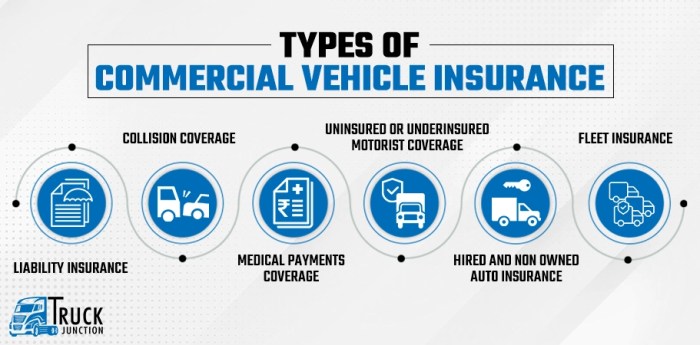Navigating the world of life insurance for startups can be a daunting task. From researching the best options to working with insurance providers, the process is complex but crucial for protecting your business. In this guide, we delve into the essential steps and considerations involved in securing life insurance for your startup, ensuring that you make informed decisions to safeguard your company's future.
Researching Life Insurance Options for Startups

When starting a new business, it is crucial to research the different life insurance options available for startups. Life insurance can provide financial protection for your business in case of unforeseen circumstances, such as the death of a key employee or business partner.
By exploring various life insurance policies, you can find the best coverage to suit your startup's needs.
Examples of Life Insurance Policies for Startups
- Key Person Insurance: This policy is designed to protect your business in the event of the death or disability of a key employee or founder. It provides funds to cover expenses related to hiring and training a replacement or compensating for lost revenue.
- Buy-Sell Agreement Insurance: This type of policy ensures that if a business partner passes away, the surviving partner(s) have the funds to buy out the deceased partner's share of the business. It helps to ensure a smooth transition of ownership.
- Term Life Insurance: A more affordable option, term life insurance provides coverage for a specific period, such as 10, 20, or 30 years. It can be a good choice for startups looking for temporary coverage.
Key Factors to Consider when Researching Life Insurance for a Startup
- Business Needs: Consider the specific needs of your startup, such as the number of employees, the value of key individuals, and the financial impact of their loss.
- Cost: Evaluate the cost of premiums and the coverage provided to ensure it aligns with your budget and offers sufficient protection for your business.
- Provider Reputation: Research insurance providers to ensure they have a good reputation for timely payouts and reliable service. Look for reviews and ratings from other businesses.
- Policy Flexibility: Choose a policy that can adapt to the changing needs of your startup. Flexibility in coverage and options can be crucial as your business grows.
Understanding the Needs of Your Startup
When considering life insurance for your startup, it is crucial to assess the specific needs of your business to ensure adequate coverage. Identifying the risks unique to startups and determining the coverage amount needed are key factors in making an informed decision.
Assessing Specific Needs
Before purchasing life insurance for your startup, evaluate the financial obligations and liabilities that would need to be covered in the event of a key person's death. Consider factors such as outstanding debts, employee salaries, and potential loss of revenue.
Identifying Risks Unique to Startups
- Uncertainty of Revenue: Startups often face unpredictable cash flow, making it essential to have a safety net in place to protect against financial instability.
- Dependency on Key Individuals: Many startups rely heavily on the expertise and leadership of key individuals. Life insurance can help mitigate the risk of losing crucial team members.
- Debt Obligations: Startups may have outstanding loans or debts that need to be settled in the event of a founder or key employee's passing. Life insurance can provide the necessary funds to cover these obligations.
Determining Coverage Amount Needed
Calculating the coverage amount for your startup involves assessing the financial impact of losing a key team member. Consider factors such as outstanding debts, ongoing operating expenses, and the cost of hiring and training replacements. It is advisable to consult with a financial advisor to determine the appropriate coverage amount based on your startup's specific needs.
Working with Insurance Providers
When it comes to securing life insurance for your startup, working with insurance providers is a crucial step in the process. Here's how you can effectively navigate this aspect of getting life insurance for your startup.
Approaching Insurance Providers
- Research and identify insurance providers that specialize in working with startups.
- Reach out to multiple providers to get quotes and compare coverage options.
- Prepare a detailed overview of your startup, including financial information and future projections, to present to the insurance providers.
Comparing Quotes and Coverage Options
- Request quotes from different insurance companies based on the information you provide.
- Compare the coverage options, including the amount of coverage, premium costs, and any additional benefits offered.
- Consider the reputation and financial stability of the insurance companies before making a decision.
Negotiating Terms and Premiums
- Be prepared to negotiate terms and premiums with the insurance providers to ensure you get the best possible deal for your startup.
- Highlight any positive aspects of your startup that could potentially lower premiums, such as a healthy work environment or a strong financial position.
- Don't be afraid to ask questions and seek clarification on any aspects of the insurance policy that you don't understand.
Fulfilling Requirements and Completing Applications

When it comes to applying for life insurance for a startup, there are certain requirements and documentation that need to be fulfilled. Completing the application process correctly is crucial to ensure that your startup gets the coverage it needs. Here's a step-by-step guide on how to fulfill these requirements and complete the application successfully.
Documentation and Requirements
- Business Information: You will need to provide details about your startup, including the business structure, industry, and financial information.
- Ownership Details: Documentation related to the ownership of the startup, such as shareholder agreements or partnership agreements, may be required.
- Employee Information: If the life insurance coverage extends to employees, you may need to provide details about the number of employees and their roles within the startup.
- Financial Statements: Most insurance providers will require financial statements to assess the financial stability of the startup.
Completing the Application Process
- Fill out the Application Form: Provide accurate and detailed information on the application form to avoid delays or complications.
- Review the Application: Double-check all the information provided to ensure accuracy before submitting the application.
- Submit Required Documentation: Attach all necessary documentation requested by the insurance provider to support your application.
- Communicate with the Provider: Stay in touch with the insurance provider to address any additional questions or requirements they may have.
Common Pitfalls to Avoid
- Providing Inaccurate Information: Make sure all information provided is correct and up-to-date to prevent issues during the underwriting process.
- Missing Deadlines: Ensure that you meet all deadlines for submitting documentation and completing the application to avoid delays.
- Not Seeking Professional Help: If you are unsure about any part of the application process, consider seeking assistance from an insurance advisor or consultant.
Last Recap

As you embark on the journey of obtaining life insurance for your startup, remember that thorough research and understanding your business's unique needs are key. By working closely with insurance providers and fulfilling all necessary requirements, you can secure the right coverage to protect your venture.
With the information provided in this guide, you are equipped to make well-informed decisions that will benefit your startup in the long run.










